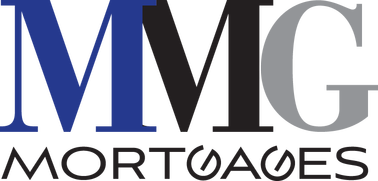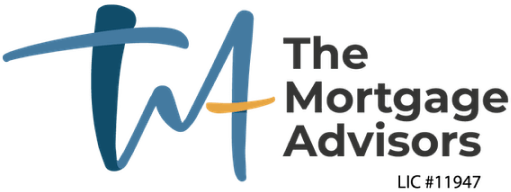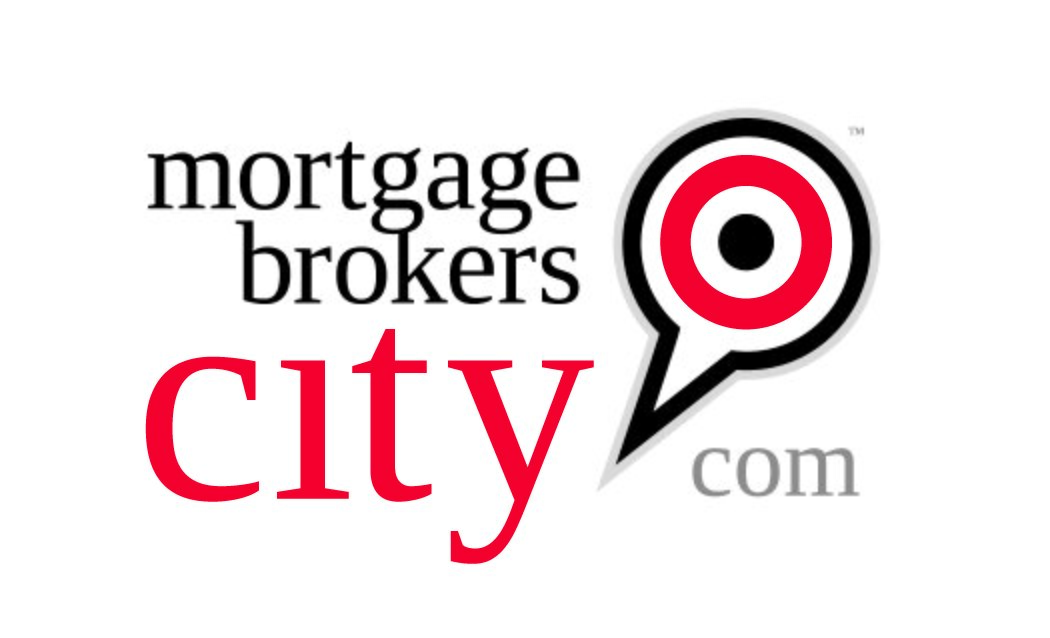Find the Best 1-year Variable Mortgage Rates in Canada
Compare the most current 1-year variable rates from major banks, credit unions and mortgage brokers.
The Best Current Mortgage Rates in Canada
Evaluate Canadas best mortgage rates in one place. RATESDOTCAs Rate Matrix lets you compare pricing for all key mortgage types and terms.
Rates are based on an average mortgage of $500,000 and subject to change based on filter criteria.
Updated 21:27 on Jul 11, 2025| Placeholder |
Insured
The rates in this column apply to borrowers who have purchased mortgage default insurance.
This is required when you purchase a home with less than a 20% down payment.
The home must be owner-occupied and the amortization must be 25 years or less.
|
80% LTV
The rates in this column apply to mortgage amounts between 65.01% and 80% of the property value. The home must be owner-occupied and have an amortization of 25 years or less. You must have purchased it for less than $1 million. These rates are not available on refinances. Refinances require "Uninsured" rates.
|
65% LTV
The rates in this column apply to mortgage amounts that are 65% of the property value or less. The home must be owner-occupied and have an amortization of 25 years or less. You must have purchased it for less than $1 million. These rates are not available on refinances. Refinances require "Uninsured" rates.
|
Uninsured
The rates in this column apply to purchases over $1 million, refinances and amortizations over 25 years. More info on the differences between insured and uninsured rates.
|
Bank Rate
Bank Rate is the mortgage interest rate posted by the big banks in Canada.
|
|---|---|---|---|---|---|
| 1-year fixed rate | 4.69% | 4.19% | 4.19% | 5.59% |
5.49%
|
| 2-years fixed rate | 4.04% | 3.89% | 3.89% | 4.54% |
4.79%
|
| 3-years fixed rate | 3.87% | 3.99% | 3.99% | 4.24% |
4.29%
|
| 4-years fixed rate | 3.99% | 3.99% | 3.99% | 4.44% |
4.39%
|
| 5-years fixed rate | 3.91% | 3.89% | 3.89% | 3.91% |
4.09%
|
| 7-years fixed rate | 4.39% | 4.24% | 4.24% | 5.19% |
5.00%
|
| 10-years fixed rate | 5.04% | 4.34% | 4.34% | 5.29% |
6.09%
|
| 3-years variable rate | 4.15% | 4.30% | 4.30% | 4.40% |
6.35%
|
| 5-years variable rate | 3.95% | 3.95% | 3.95% | 4.05% |
4.25%
|
| HELOC rate | N/A | N/A | N/A | N/A |
N/A
|
| Stress Test | 5.25% | 5.25% | 5.25% | 5.25% |
N/A
|
Today's Best Mortgage Rates in Canada
Evaluate Canada’s best mortgage rates in one place. You can compare the most current mortgage rates and monthly payments from 175+ banks and lenders across Canada.
Rates are based on an average mortgage of $500,000 and subject to change based on filter criteria.
| Lender
|
Insured
|
Insurable
|
Uninsured
|
|---|---|---|---|
|
MMG Mortgages
|
3.99%
$2,627.39 / month
|
4.19%
$2,681.85 / month
|
4.14%
$2,668.19 / month
|
|
Mortio Financial Corp
|
3.99%
$2,627.39 / month
|
4.24%
$2,695.56 / month
|
4.14%
$2,668.19 / month
|
|
Northwood Mortgage Ltd.
|
4.14%
$2,668.19 / month
|
4.24%
$2,695.56 / month
|
4.24%
$2,695.56 / month
|
|
Innovation Federal Credit Union
|
4.39%
$2,736.87 / month
|
4.39%
$2,736.87 / month
|
4.39%
$2,736.87 / month
|
|
True North Mortgage
|
2.99%
$2,363.66 / month
|
2.99%
$2,363.66 / month
|
2.99%
$2,363.66 / month
|
|
The Mortgage Advisors
|
3.87%
$2,594.98 / month
|
3.87%
$2,594.98 / month
|
3.87%
$2,594.98 / month
|
|
Nesto
|
3.91%
$2,605.76 / month
|
3.91%
$2,605.76 / month
|
3.91%
$2,605.76 / month
|
|
Hypotheca
|
3.94%
$2,613.86 / month
|
3.94%
$2,613.86 / month
|
3.94%
$2,613.86 / month
|
|
MortgagestoGo
|
3.94%
$2,613.86 / month
|
3.94%
$2,613.86 / month
|
3.94%
$2,613.86 / month
|
|
One Link Mortgage & Financial
|
3.95%
$2,616.57 / month
|
3.95%
$2,616.57 / month
|
3.95%
$2,616.57 / month
|
|
Sudbury Credit Union
|
3.99%
$2,627.39 / month
|
3.99%
$2,627.39 / month
|
3.99%
$2,627.39 / month
|
|
Monster Mortgage
|
3.99%
$2,627.39 / month
|
3.99%
$2,627.39 / month
|
3.99%
$2,627.39 / month
|
|
Northern Birch Credit Union
|
3.99%
$2,627.39 / month
|
3.99%
$2,627.39 / month
|
3.99%
$2,627.39 / month
|
|
The Police Credit Union
|
3.99%
$2,627.39 / month
|
3.99%
$2,627.39 / month
|
3.99%
$2,627.39 / month
|
|
City Wide Financial Corp
|
3.99%
$2,627.39 / month
|
3.99%
$2,627.39 / month
|
3.99%
$2,627.39 / month
|
|
Mainstreet Credit Union
|
3.99%
$2,627.39 / month
|
3.99%
$2,627.39 / month
|
3.99%
$2,627.39 / month
|
|
East Coast Mortgage Brokers
|
4%
$2,630.10 / month
|
4%
$2,630.10 / month
|
4%
$2,630.10 / month
|
|
Mortgage Brokers City Inc
|
4.04%
$2,640.95 / month
|
4.04%
$2,640.95 / month
|
4.04%
$2,640.95 / month
|
|
Prospera Credit Union
|
4.04%
$2,640.95 / month
|
4.04%
$2,640.95 / month
|
4.04%
$2,640.95 / month
|
|
First Credit Union
|
4.29%
$2,709.29 / month
|
4.29%
$2,709.29 / month
|
4.29%
$2,709.29 / month
|
|
First National Financial
|
4.34%
$2,723.07 / month
|
4.34%
$2,723.07 / month
|
4.34%
$2,723.07 / month
|
Jump straight to...
What is a 1-year variable mortgage rate?
A 1-year variable mortgage rate is an uncommon mortgage product in Canada. Many lenders typically do not offer such a product. That’s because they are not very profitable, given the short-term horizon and the fact that most borrowers seeking short-term loans historically have been renovators, builders or flippers who need financing until their property is completed and sold.
Variable-rate mortgages are designed to have fluctuating interest rates that track the overnight rate set by the Bank of Canada. When the Bank of Canada raises rates, as it has been doing recently, the rate paid on a variable-rate mortgage will rise.
Variable-rate mortgages can have adjustable payments or fixed payments. The former means that your weekly or monthly payment will change soon after the Bank of Canada raises or lowers interest rates.
Fixed payment variable mortgages, on the other hand, are designed to make payments more predictable. Payments will not immediately rise when the Bank of Canada makes a change. Instead, the proportion of your payment that goes toward interest will increase, which means your amortization, or the time it takes to pay off your loan, will increase. This can make the overall cost of your mortgage much more expense in the long run.
One-year fixed rates, but comparison, are much more popular loans than variable. While these mortgages are not as popular as five-year fixed mortgages, many lenders will offer them, in contrast to the rarity of the one-year variable.
Why are 1-year variable rates so popular?
Unfortunately, 1-year variable mortgages are not popular. In fact, it can be difficult to secure such a loan. You will find that many lenders instead will offer longer-term variable mortgages, most commonly the five-year mortgage.
If you do find a 1-year variable mortgage, you will likely pay a higher interest rate than a five-year, given the fact that many who seek out shorter term loans tend to only need temporary financing until they sell their property.
What causes changes in 1-year variable rates?
The Bank of Canada is the determining factor in variable mortgage rates. Your rate will initially be set at a discount to the prime rate — this is an interest rate that your lender will set your mortgage against. Many variable-rate mortgages have a discount to the prime rate.
So, for example, if the bank’s prime rate is 4%, your variable-rate mortgage may have a “prime minus 0.5” discount. Meaning your variable rate mortgage will be at 3.5%.
When the Bank of Canada raises or lowers interest rates, the prime rate changes, and so does the rate on your variable mortgage.
In November 2022, the Bank of Canada raised its overnight rate by 50 basis points. If we take the above example, the prime rate would rise to 4.5%, and the variable rate mortgage would rise to 4%. A similar move would occur in the inverse direction if the Bank of Canada lowered its overnight rate.
Variable-rate mortgages in the past two years, unfortunately, have cost borrowers more money than fixed-rate mortgages, as the Bank of Canada has raised rates multiple times throughout 2022 in one of the most aggressive rate hike campaigns in its history.
| Date | 1-year conventional mortgage rate | 1 - 3 year Government of Canada marketable bonds (average yield) |
|---|---|---|
| 2020-07-15 | 3.09 | 0.24 |
| 2021-01-13 | 2.79 | 0.16 |
| 2022-03-23 | 2.94 | 1.99 |
| 2022-03-30 | 2.99 | 2.21 |
| 2022-04-06 | 3.09 | 2.28 |
| 2022-04-27 | 3.29 | 2.47 |
| 2022-05-11 | 3.49 | 2.66 |
| 2022-05-25 | 3.79 | 2.48 |
| 2022-06-15 | 4.29 | 3.24 |
| 2022-06-22 | 4.69 | 3.22 |
| 2022-06-29 | 4.74 | 3.12 |
| 2022-07-27 | 5.19 | 3.09 |
| 2022-09-14 | 5.39 | 3.72 |
| 2022-09-21 | 5.69 | 3.73 |
| 2022-10-05 | 6.09 | 3.83 |
How do major banks price 1-year mortgages?
The interest rate on a variable-rate mortgage will be a discount to the prime rate, as mentioned.
But these discounts can fluctuate over time. In 2021, it was common to see large discounts to prime for variable-rate mortgages, often times in the neighbourhood of one percentage point or more.
However, more recently, this discount has narrowed, with 50 basis points being more common.
Lenders will determine discounts to prime based on risk, and it will be determined at the time you sign the term for your mortgage.
Right now, with the Bank of Canada aggressively hiking interest rates, and worries about a recession looming in Canada, discounts to variable rates are smaller than they have been in recent years, due to a perceived heightened risk of lending in the market.
This smaller discount to prime means variable-mortgage rates and fixed-mortgage rates are closely priced in the current market. This is out of whack with historical norms: variable-rate mortgages traditionally tend to have lower rates than fixed-rate mortgages.
There have even been times when fixed-rate mortgages have been lower than variable-rate mortgages, most notably in 2019. This is when bond yields, which fixed-rates are priced against, began to decline, while the Bank of Canada had not yet cut interest rates.
Whether bond yields again begin to decline in fears of an impending recession and we see the same move in 2023 remains to be seen.
1-year variable pros and cons
Pros:
- Short-term financing option if you plan to hold on to a property for less than a year
- Break penalties tend to be smaller than one-year fixed rate mortgages
- Historically variable-rate mortgages have lower starting rates than fixed-rate mortgages
Cons:
- 1-year variable mortgages are uncommon and most lenders won’t offer them or steer you to alternate products
- Can carry higher interest rates than 5-year variable mortgages
1-year variable rate predictions
Variable-mortgage rates are priced based on the Bank of Canada’s overnight interest rate. Since March 2022, the BoC has been increasing this rate steadily, from a record low of 0.25% to 3.75% as of November 2022.
The bank has been raising rates in an effort to calm inflation. Inflation is a rise in the cost of goods, and the BoC has a target inflation rate of 1-3%. Unfortunately, inflation in 2022 has been far higher, with a reading in November of 6.9%.
The reasons for this have been numerous. Ultra low interest rates by central banks around the world during the COVID pandemic led to a surge of demand, because borrowing money was cheap. This led to a short of goods, which rose prices.
As well, the pandemic created problems around the world with supply chains, as countries locked down or workers got sick. This further increased prices.
The invasion of Ukraine by Russia in February 2022 further worsened the inflation crisis, with sanctions on Russia cutting off its oil and gas from the world (Russia is a leading exporter of fossil fuels). Food prices, meanwhile, also skyrocketed, as Ukraine is one of the world’s largest grain exporters.
All these problems are weighing on the outlook for variable mortgage rates. The Bank of Canada is expected to again raise interest rates at its December 2022 meeting, and there are predictions that hikes could continue into the first half of 2023.
If that proves to be correct, then variable-rate mortgages will see increases as well.
Frequently asked questions about 1-year variable mortgages
Find answers to all your questions about 1-year variable mortgages here.
How can I find the best 1-year variable mortgage rate?
You should go online and shop around. Connecting with a broker is a great way to see what lenders are willing to offer you a 1-year variable mortgage. RATESDOTCA can connect you with a variety of brokers to get you started on your journey. Keep in mind, you may have difficulties finding a 1-year variable product as these are not common.
What happens at the end of a 1-year variable mortgage?
When your term ends, your mortgage will be up for renewal. This means you can sign on for another term, or you can fully pay off your mortgage. Because many who opt for one-year mortgage terms tend to be renovators, flippers, or builders, who look to divest of their property when their term is up, one-year products tend to have higher interest rates. When your term is up, however, you can opt for another term, and this time it can be something more common, such as a five-year variable, which will be offered by many lenders and likely come with a lower mortgage rate.
Can you refinance a 1-year variable mortgage?
Yes, you can. Most variable-rate mortgages have lighter penalties than breaking a fixed-rate mortgage. Often, this is just three months interest. When you refinance, you can choose a new term. However, given that this mortgage is such a short term, consider the cost of the penalty versus the benefits of refinancing.
What is a mortgage rate lock?
A mortgage rate lock allows you to secure an interest rate for a period of time. So if you find a great rate, but you are on the house hunt, speak to your adviser or broker about securing your rate. Often, mortgag rates can be locked for 60-120 days, depending on the lender. This can give you peace of mind that if mortgage rates change during your house hunt, you’ll still have a great rate.




























